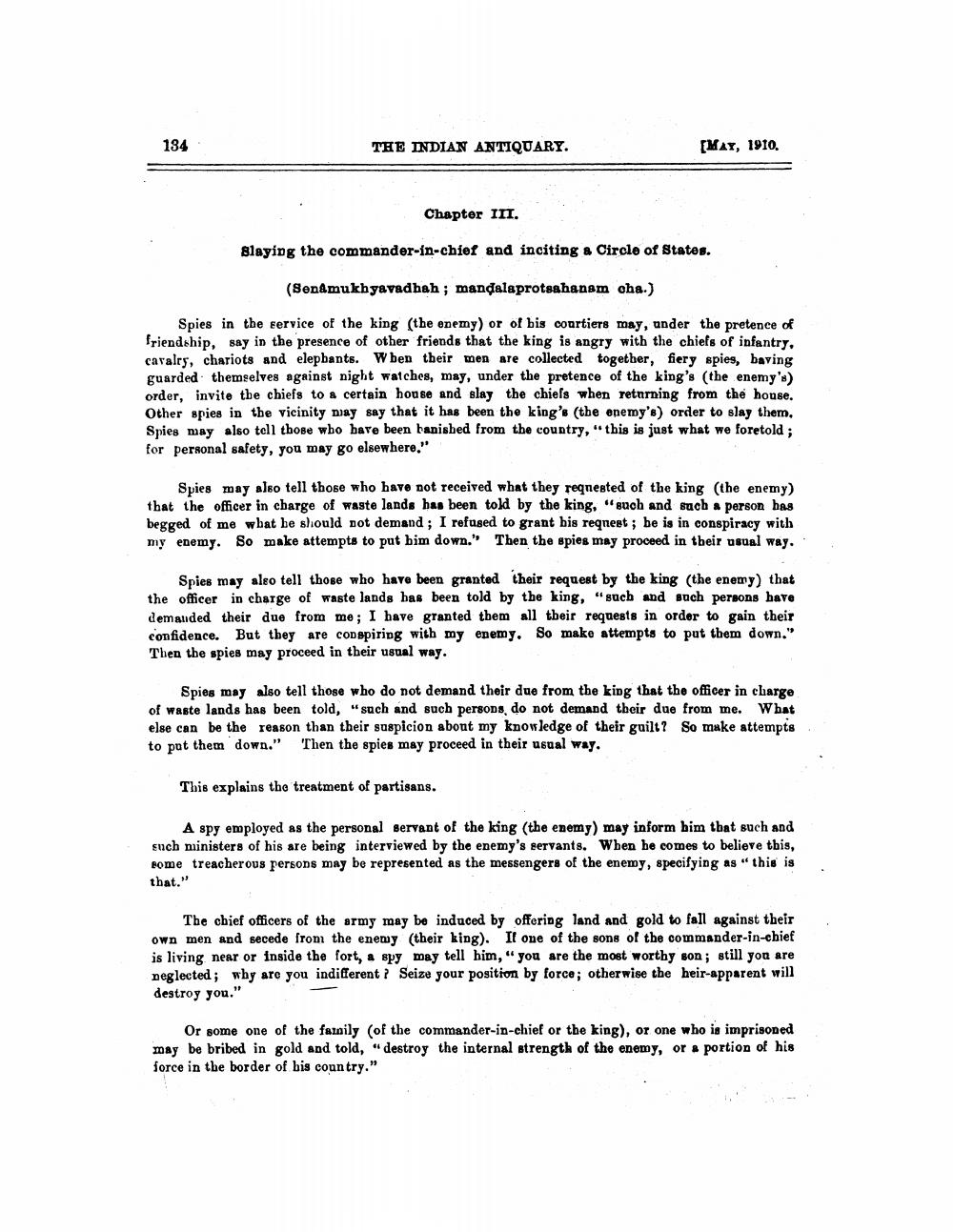________________
134
THE INDIAN ANTIQUARY.
[MAY, 1910.
11
Chapter III.
Blaying the commander-in-chief and inciting a Circle of States.
(Senamukhyavadhah ; manqalaprotsahanam cha.)
Spies in the service of the king (the enemy) or of bis courtiers may, under the pretence of friendship, say in the presence of other friends that the king is angry with the chiefs of infantry, cavalry, chariots and elephants. Wben their men are collected together, fiery spies, baving guarded themselves against night watches, may, under the pretence of the king's (the enemy's) order, invite the chiefs to a certain house and slay the chiefs when returning from the house. Other spies in the vicinity nay say that it has been the king's (the enemy's) order to slay them, Spies may also tell those who have been banished from the country, this is just what we foretold; for personal safety, you may go elsewhere."
Spies may also tell those who have not received what they reqnested of the king (the enemy) that the officer in charge of waste lands has been told by the king, "such and such a person has begged of me what he should not demand; I refused to grant his reqnest; he is in conspiracy with my enemy. So make attempts to put bim down." Then the spies may proceed in their usual way.
Spies may also tell those who have been granted their request by the king (the enemy) that the officer in charge of waste lands has been told by the king, "such and such persons have demanded their due from me; I have granted them all their requests in order to gain their confidence. But they are conspiring with my enemy. So make attempts to put them down." Then the spies may proceed in their usual way.
Spies may also tell those who do not demand their due from the king that the officer in charge of waste lands has been told, "such and such persons do not demand their due from me. What else can be the reason than their suspicion abont my knowledge of their guilt? So make attempts to put them down." Then the spies may proceed in their usual way.
This explains the treatment of partisans.
A spy employed as the personal servant of the king (the enemy) may inform him that such and euch ministers of his are being interviewed by the enemy's servants. When he comes to believe this, some treacherous persons may be represented as the messengers of the enemy, specifying as "this is that."
The chief officers of the army may be induced by offering land and gold to fall against their own men and secede from the enemy (their king). If one of the sons of the commander-in-chief is living near or inside the fort, a spy may tell him, "you are the most worthy son; still you are neglected; why are you indifferent ? Seize your position by force; otherwise the heir-apparent will destroy you."
Or some one of the family of the commander-in-chief or the king), or one who is imprisoned may be bribed in gold and told, "destroy the internal strength of the enemy, or portion of his force in the border of his country."




